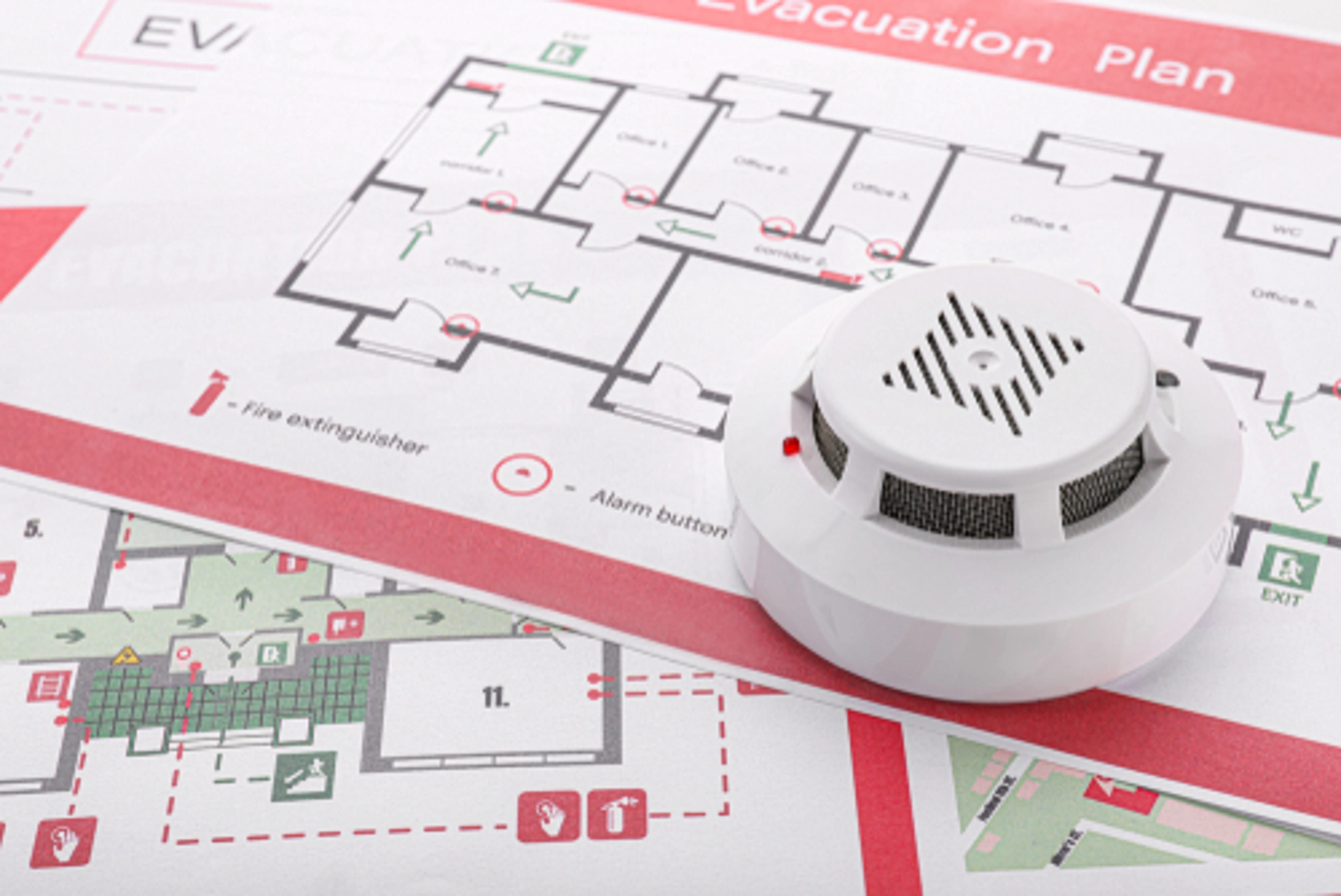
Each year, the month of October is designated as “Fire Prevention Month” in North America. Beyond that, the second week of the month is known as Fire Prevention Week. But what is the significance of holding it in October, and what are some primary fire safety and prevention tips you should know? SERVPRO® has you covered with a history of Fire Prevention Month, and how you can best prepare for, and minimize, your chance of a fire.
A History of Fire Prevention Month
So, how did Fire Prevention Month get started in the first place? And why is it held in October?
It all goes back to 1871, when the Great Chicago Fire struck on October 8, rampaging for two days. While the cause of the fire remains debated to this day, the severe devastation and loss of life, along with other significant fire events that year (including the Peshtigo Fire in Wisconsin, and the Great Michigan Fire), culminated in a decision to use this time each year to help people understand the proper methods of fire safety, and how best to prepare and minimize their chance of a blaze.
Additionally, as the city of Olivette, Missouri details, in 1920, President Woodrow Wilson issued the first proclamation for a National Fire Day. Following that, starting in 1922, the National Fire Protection Association began sponsoring the public observance of a National Fire Week. Each year since then, fire prevention has been a significant October theme, while the second week of the month (specifically, the Sunday through Saturday where October 9 falls) is considered Fire Prevention Week across North America. In fact, in 1925, President Calvin Coolidge declared National Fire Week a national observance (with October 9 being designated as National Fire Prevention Day).
Fire Prevention Week Themes
While the entire month of October is dedicated to raising awareness about fire prevention, the second week of the month always has a theme. For example, 2024’s theme for Fire Prevention Week is “Smoke alarms: Make them work for you!”
Speaking of smoke alarms, in addition to the National Fire Protection Association’s website, SERVPRO offers numerous articles about smoke alarms and fire damage cleanup, including “Why Do Smoke Alarms Go Off for No Reason?”, “Which Smoke Detector is Right for Your Home or Business?” and more.
Some past themes of Fire Prevention Week have included:
- 2021: “Learn the sounds of fire safety.”
- 2020: “Serve up fire safety in the kitchen!”
- 2019: “Not every hero wears a cape. Plan and practice your escape!”
Fire Safety Tips: Before, During, and After a Fire
The American Red Cross provides the following fire safety and prevention tips. (Note: the lists below are not all-encompassing; visit their website for more information.)
- Install the correct number of smoke alarms for your property, making sure to test batteries monthly, and replace them yearly.
- Establish methods of communication and meet-up points if a fire occurs and your party is split up.
- Teach kids to “stop, drop, and roll” if their clothes catch on fire.
- Practice evacuating during a fire at least twice a year.
- Make sure you know how to safely use a fire extinguisher, if needed.
- Yell “Fire!” to alert others, then get out of the property as quickly as possible.
- Stay outside and call 911.
- Do not open doors that are warm to the touch.
- Do not use elevators; use stairs.
- If you must go through smoke to exit, get low, and go under the smoke. Close doors behind you, if possible.
- Call 911 (if you have not contacted them yet), then contact friends and family to let them know you are safe.
- Stay out of your fire-damaged home or property until firefighters and other authorities deem it safe.
- Take yourself, others, and pets to a hospital and/or veterinary clinic, as needed.
For All Types of Fire Damage Cleanup, SERVPRO is Here to Help®
While extensive efforts can be taken to help prevent fires, unfortunately, they can still occur. This might be due to accidents, user error, faulty equipment, or more. Still, armed with the information in this article and additional preparation you can find elsewhere (such as your local fire department, or the American Red Cross’s resource guide to home fire safety tips), you can help minimize your chances of a fire, and the dangers that come with it.
If fire does strike, know that after the fire department leaves, SERVPRO is ready and available to provide cleanup, restoration, and construction services anytime, anyplace. For over five decades, restoration professionals have developed proper methods, proprietary equipment, tools, chemicals, and more to help get the job done, and return your space to pre-fire condition, “Like it never even happened.”
Please visit our FAQ and glossary to learn more about SERVPRO and the cleanup and restoration industry.